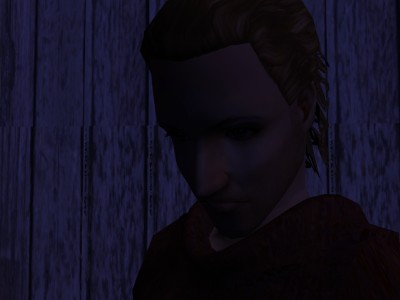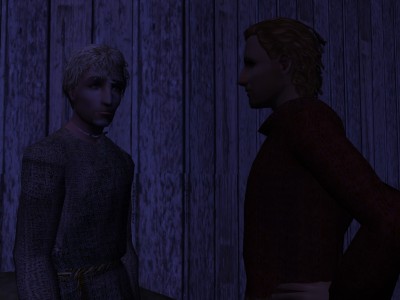
It was absurd to think that a man could finish so much work in one day – simply impossible. There were the rents and the leases to revise and collect, the new servants to be hired and the old to have their wages fixed for the next quarter, widows and orphans to be pensioned, debts and crimes to be forgiven… there had even been the matter of the plow that had simply vaporized overnight if the farmers in charge of it were to be believed.
No man could do so much work in one day, and an honest one would not go out in the evening if he had not finished his work. Therefore it was absurd to think he would go out – simply impossible. So he had told himself all through the day.
And all through the day he had worked as if Gabriel’s trump were certain to sound on the morrow, and all men with unfinished work were to be denied their place in Paradise.
He had jogged when he should have walked, cantered when he should have trotted. He had swallowed his pride in his penmanship and let the wind have its way with his hair. He had greeted the hems and haws and excuses of the farmers with such explosive impatience that there had been a marked, if temporary, improvement in both the grammar and good manners of the residents that day. He had worked as it would be absurd to expect a man to work.

The result of all this was that, though he had arrived late for supper and had suffered the scoldings of his lady therefore, after the meal he had been able to do what all through the day he had told himself was simply impossible: he had mounted his uncomprehending horse and ridden out over the gray meadows, across the river, and up into the hills behind the old church.
And the result of his day-long denial of the plausibility of this excursion was that he now had no idea what he was going to do or say.
He had tied his horse at the gate at the base of the birch hill, and now he was loitering in the shadows of the barns, looking, he thought, like nothing so much as a potential arsonist.
When a man stepped out of one of the barns, Ethelwyn decided he had better dispel any such suspicions by striding boldly up to him.

“Pardon me,” he began, “but I – ”
“Aren’t you – !” the man gasped.
“Sir Egelric’s steward,” Ethelwyn supplied immediately.
“I know but – aren’t you the one what fell in the moat with Mouse?” The man grinned and looked him over in shy admiration, as if he were meeting a celebrity.
“Yes, yes, I am he,” Ethelwyn sighed. “Is your – ”
He realized immediately that he could not ask for the mistress. The man would immediately know why he had come.

“ – master at home?” he finished.
“No, not him,” the man said, confounding Ethelwyn by nodding eagerly as if in agreement.
“I see. Well…”
Ethelwyn attempted to calculate the propriety of asking to see the mistress, given that he might be expected to guess that the mistress was home alone, and factoring in the slight chance that the man could guess why he had come, which was evidently to be multiplied by the fact that the man knew he had fallen into the moat with her… and who knew what else? This sort of accounting was beyond his capacities for mental arithmetic.
Fortunately the man solved it for him by adding, “Mistress isn’t here neither. Her and him went to the manor. It’s her birthday, you know,” he said, shaking his head as if it were a shame – though Ethelwyn was beginning to think that the man simply chose his gestures to maximize the confusion of his audience.

“Ah, I see. Very well. I shall come another day.”
Ethelwyn panicked. Had he said too much? He had never come before. Would the man tell his master that Ethelwyn had been there? Would he tell his mistress? Would he say he had promised to return? Why, oh why had he told the man who he was?
“Good evening,” Ethelwyn choked and turned away.
“I don’t know,” the man drawled, “but you seem real polite to me.”
Ethelwyn turned back in time to hear him chuckling to himself as he walked away, shaking his head as if it were a shame.






Oh, poor guy. And I know how much courage that takes...